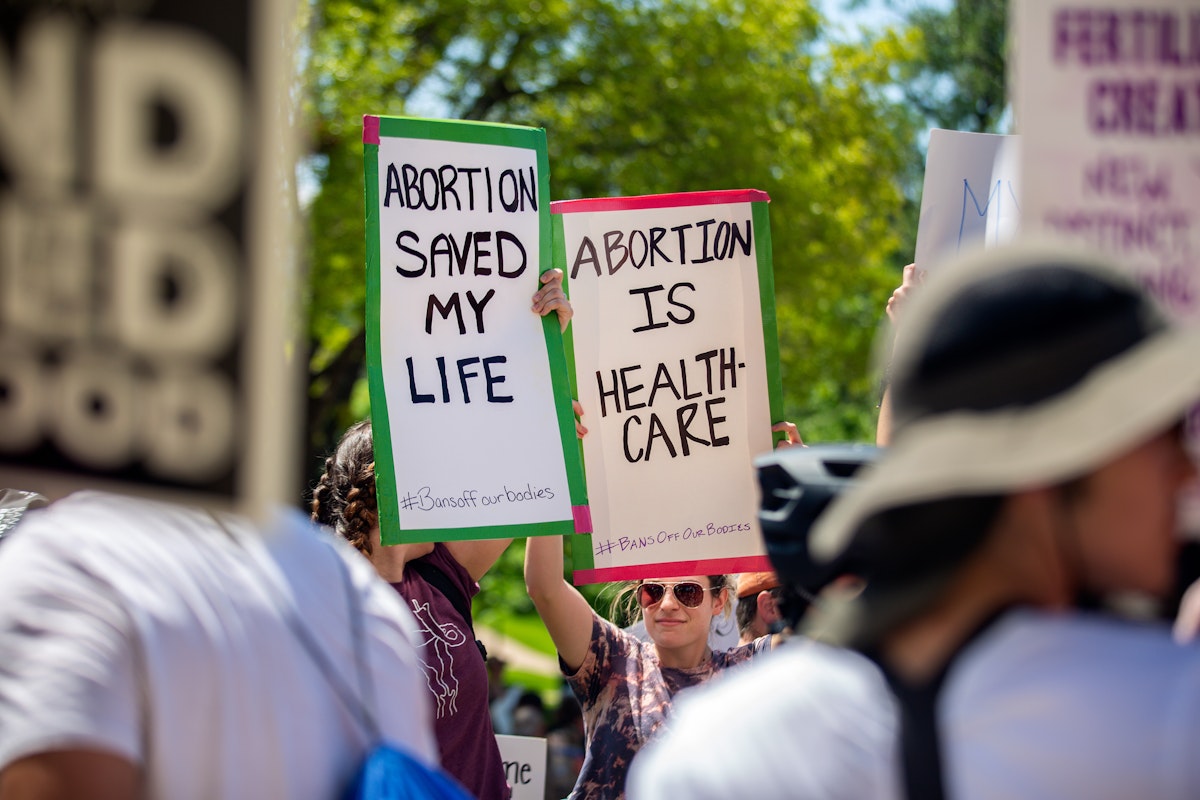The Texas Supreme Court Tells Women They Can Go Die
The Texas Supreme Court unanimously rejected a challenge to the state’s abortion laws Friday, overturning a lower court’s decision that would have allowed women within Texas to actually access abortions granted within the confines of the state’s ban.The case, Zurawski v. Texas, began with five women and eventually grew to represent 20 women and two doctors. It became the strongest challenge to the constitutionality of the state’s myriad abortion restrictions implemented since Roe v. Wade was overturned in 2022.The Center for Reproductive Rights, which brought the suit last year, argued that while the state’s laws technically left room for abortions in urgent circumstances, they were also so vague that they practically restricted all medical practitioners from actually considering the procedure as an option. Specifically, people could undergo abortions during complicated pregnancies so long as their doctor made a “good faith judgment” that it was medically necessary. But opponents to the laws have argued that “good faith” is too subjective for language determining medical access—and could potentially open doctors up to lawsuits brought by anyone who didn’t believe the procedure was required. The court, however, did not see that complication.“A physician who tells a patient, ‘Your life is threatened by a complication that has arisen during your pregnancy, and you may die, or there is a serious risk you will suffer substantial physical impairment unless an abortion is performed,’ and in the same breath states ‘but the law won’t allow me to provide an abortion in these circumstances’ is simply wrong in that legal assessment,” wrote Justice Jane Bland in the court’s opinion.The ruling effectively leaves people in need of abortions within the state just two options: either leave, or risk death.“Sadly, what we know is that there are anti-abortion advocates who will always question [a doctor’s] decision,” Molly Duane, senior counsel for the Center for Reproductive Rights, told The Texas Tribune. “I don’t know how all of this will actually function in practice … the fact that true exceptions do not exist in practice will continue to be the norm.”The brief opinion made no mention of the 20-plus women who were represented by the lawsuit and who individually suffered under Texas’s nearly airtight abortion restrictions. Lauren Miller, a Dallas mother who was forced out of state after learning that one of her twin fetuses had a complication that threatened her health as well as the health of her other child, told the Tribune that the decision felt like a “gut punch.”“I read the ruling. I felt like I had missed something. And so I immediately reread it, and I realized what was missing in those pages was us. We weren’t there. We didn’t exist,” Miller told the publication.One member of the court, Justice Brett Busby, left enough wiggle room in his concurring opinion for a broader challenge to the law. But legal challenges are time-consuming, and in the meantime, more patients could be forced to wait until their symptoms are life-threatening before doctors can offer them abortions.Texas has recently turned up the heat on its anti-abortion policies, forcing the issue into the center of the Lone Star State’s politics. Over the weekend, a policy agenda proposed by the GOP convention in San Antonio included calls for legislation that would transform the fetal personhood ideology into law, a move that would effectively categorize any person receiving an abortion at any stage as a murderer.

The Texas Supreme Court unanimously rejected a challenge to the state’s abortion laws Friday, overturning a lower court’s decision that would have allowed women within Texas to actually access abortions granted within the confines of the state’s ban.
The case, Zurawski v. Texas, began with five women and eventually grew to represent 20 women and two doctors. It became the strongest challenge to the constitutionality of the state’s myriad abortion restrictions implemented since Roe v. Wade was overturned in 2022.
The Center for Reproductive Rights, which brought the suit last year, argued that while the state’s laws technically left room for abortions in urgent circumstances, they were also so vague that they practically restricted all medical practitioners from actually considering the procedure as an option. Specifically, people could undergo abortions during complicated pregnancies so long as their doctor made a “good faith judgment” that it was medically necessary.
But opponents to the laws have argued that “good faith” is too subjective for language determining medical access—and could potentially open doctors up to lawsuits brought by anyone who didn’t believe the procedure was required. The court, however, did not see that complication.
“A physician who tells a patient, ‘Your life is threatened by a complication that has arisen during your pregnancy, and you may die, or there is a serious risk you will suffer substantial physical impairment unless an abortion is performed,’ and in the same breath states ‘but the law won’t allow me to provide an abortion in these circumstances’ is simply wrong in that legal assessment,” wrote Justice Jane Bland in the court’s opinion.
The ruling effectively leaves people in need of abortions within the state just two options: either leave, or risk death.
“Sadly, what we know is that there are anti-abortion advocates who will always question [a doctor’s] decision,” Molly Duane, senior counsel for the Center for Reproductive Rights, told The Texas Tribune. “I don’t know how all of this will actually function in practice … the fact that true exceptions do not exist in practice will continue to be the norm.”
The brief opinion made no mention of the 20-plus women who were represented by the lawsuit and who individually suffered under Texas’s nearly airtight abortion restrictions. Lauren Miller, a Dallas mother who was forced out of state after learning that one of her twin fetuses had a complication that threatened her health as well as the health of her other child, told the Tribune that the decision felt like a “gut punch.”
“I read the ruling. I felt like I had missed something. And so I immediately reread it, and I realized what was missing in those pages was us. We weren’t there. We didn’t exist,” Miller told the publication.
One member of the court, Justice Brett Busby, left enough wiggle room in his concurring opinion for a broader challenge to the law. But legal challenges are time-consuming, and in the meantime, more patients could be forced to wait until their symptoms are life-threatening before doctors can offer them abortions.
Texas has recently turned up the heat on its anti-abortion policies, forcing the issue into the center of the Lone Star State’s politics. Over the weekend, a policy agenda proposed by the GOP convention in San Antonio included calls for legislation that would transform the fetal personhood ideology into law, a move that would effectively categorize any person receiving an abortion at any stage as a murderer.



